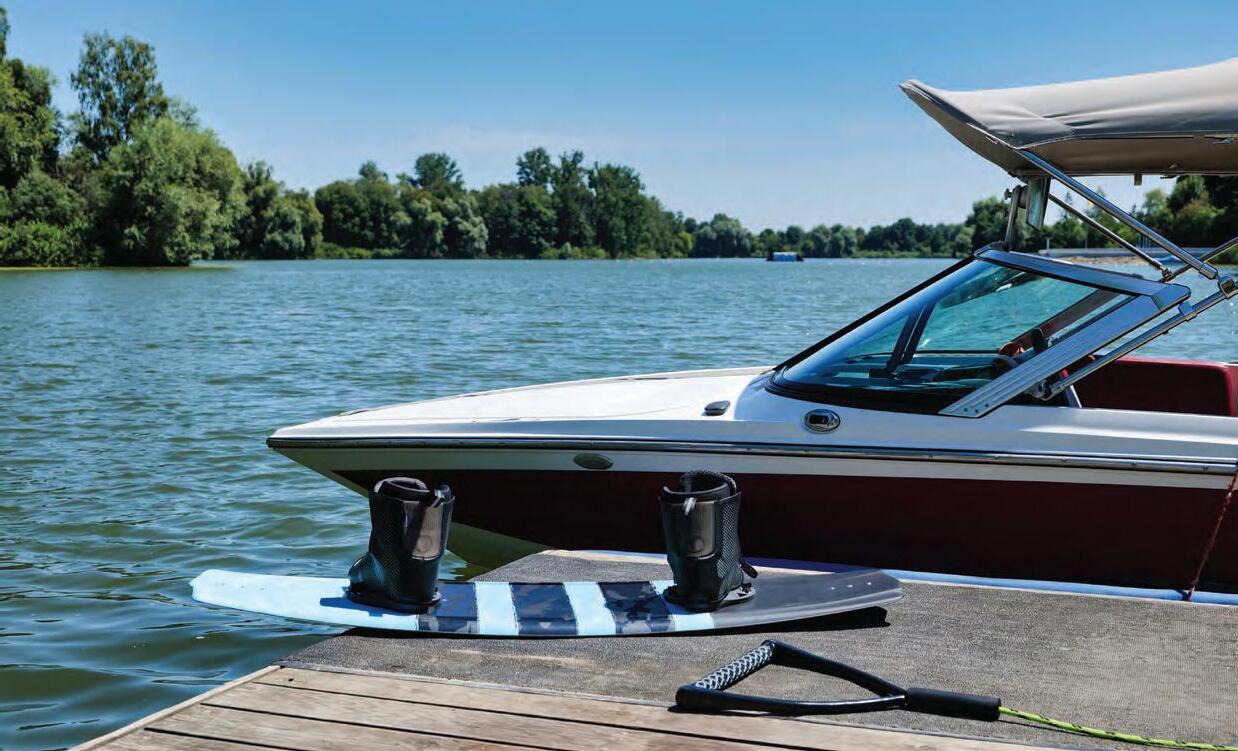
1 minute read
Prevent Deadly Shocks, Check Your Boats and Docks
An important step in helping prevent such tragedies is to ensure proper installation and maintenance of electrical equipment on docks and on boats. Take the time to inspect all electrical systems on or near the water.
Safe Electricity, with the American Boat and Yacht Council and International Brotherhood of Electrical Workers/National Electrical Contractors Association, recommends adhering to these steps to improve water recreation safety and accident prevention:
• All electrical installations should be performed by a professional electrical contractor familiar with marine codes and standards, and inspected at least once a year.
• Docks should have ground fault circuit interrupter (GFCI) breakers on the circuits feeding electricity to the dock.
• The metal frame of docks should be bonded to connect all metal parts to the alternating current (AC) safety ground at the power source. That will ensure any part of the metal dock that becomes energized because of electrical malfunction will trip the circuit breaker.
• Neighboring docks can also present a shock hazard. Make your neighbors aware of the need for safety inspections and maintenance. Marinas should comply with NFPA and NEC codes.
Tips to remember for your boat’s electrical system, particularly those with AC systems:
• Regardless of the size of boat, maintenance of the electrical system should be done by a professional familiar with marine electrical codes.
• Have your boat’s electrical system checked at least once a year. Boats should also be checked when something is added to or removed from their systems.
• Boats with AC systems should have isolation transformers or equipment leakage circuit interrupter (ELCI) protection, comply with ABYC standards, and be serviced by an ABYC Certified® Technician.
If you are in the water and feel electric current:
• Shout to let others know.
• Tuck your legs up to make yourself smaller.
• Tr y to go away from anything that could be energized.
• Do not head to boat or dock ladders to get out.
If you are on the dock or shore when a swimmer feels electrical current:
• Do not jump in.
• Throw them a flotation device.
• Unplug or turn off the source of electricity as quickly as possible.
• Then call for help.
Remember to prioritize safety while boating and be mindful of the dangers of electricity. Follow these safety guidelines, wear life jackets, and be aware of potential electrical safety issues. Your well-being and the well-being of your loved ones depend on these precautions. Stay safe and enjoy your time on the water. Don’t forget, “Prevent deadly shocks. Check your boats and docks.”










